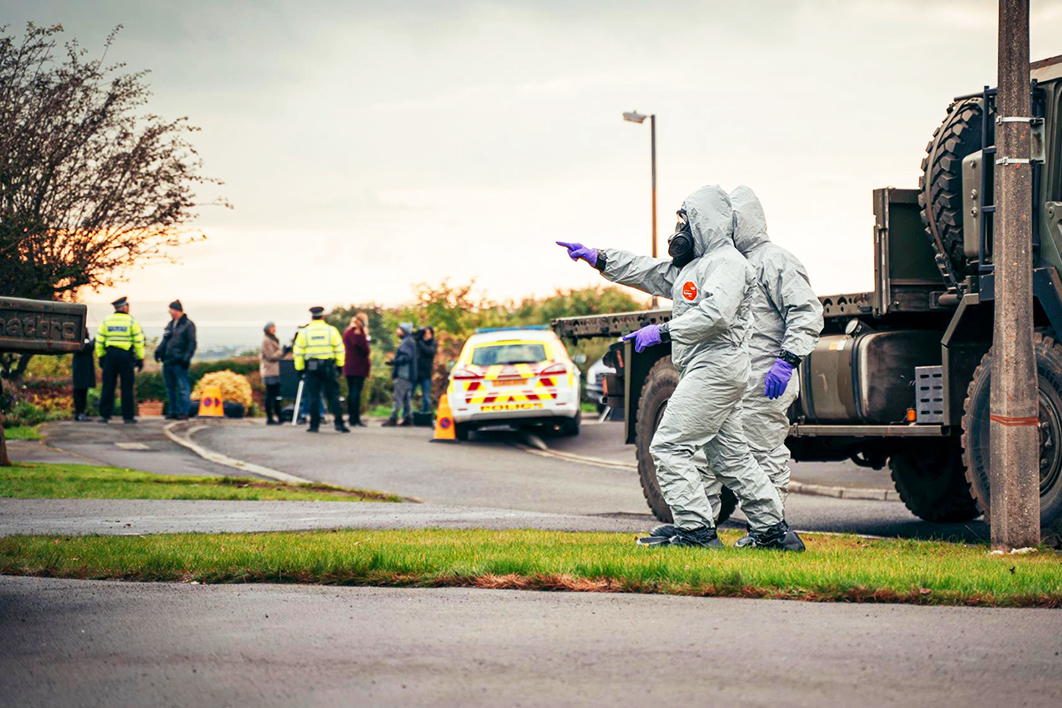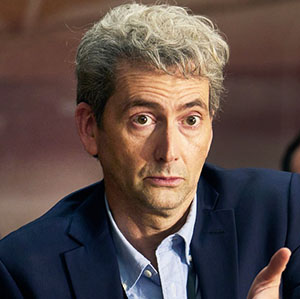The poisoning of former Russian intelligence officer Sergei Skripal and his daughter Yulia in the British town of Salisbury in March 2018 set conspiracy theories running like wildfire. Prime minister Theresa May’s premature conclusion that it was done on the orders of Russian president Vladimir Putin triggered a diplomatic crisis and, far from resolving the case, focused more urgent attention on its anomalies.
Why Skripal, when he was no longer active as an informer to the British intelligence services? Novichok, in the words of a chemical weapons expert, is “one of the most toxic substances on earth” yet, in this instance, it did not prove fatal. And was it purely coincidence that the incident occurred within a few miles of Porton Down, a “secretive government facility” specialising in researching nerve agents, plague bacteria and other hazardous substances?
This type of intrigue captures the public imagination, and it’s certainly a gift to any producer in search of ideas for a new television series. But the new British dramatisation The Salisbury Poisonings, showing on SBS on four consecutive nights this week, sidelines the politics of the case and steers clear of the conspiracies, focusing instead on its local impact.
During their several weeks living in Salisbury while preparing the screenplay, writers Adam Patterson and Declan Lawn decided there was a story to be told about “ordinary people in an extraordinary situation who did remarkable things under enormous pressure.” They worked in close consultation with Tracy Daszkiewicz who, as county director of public health and safety, was at the centre of events from the outset.
Daszkiewicz describes Salisbury as “an amazing town with unique communities,” an impression conveyed in the opening scenes, as journalists report how local residents have rallied to help each other in recent floods. Only three months into her role with the local health authority, Daszkiewicz found herself in a situation for which there was no guidebook, working to prevent what could become a large-scale catastrophe. Portrayed in the series by Anne-Marie Duff, she is the kind of person who is thoroughly versed in the professional protocols that decree where and how responsibilities are allocated.
In the first episode we see this routine professionalism kicking in as soon as the poisoning is reported. Staff at the police station get the alert that two people have collapsed on a bench in the town centre. An officer is on the scene. Daszkiewicz, who is getting her son ready for school, receives a call from the police station. “I’m on my way,” she says.
Prompt, casual, alert: those are qualities about to be tested as, hour by hour, the situation blows out in ways that prefigure the current pandemic. Countless ordinary lives are about to be forced off the rails as the quarantine implications are recognised.
Over the next few days, urgent discussions in the superintendent’s office expand to conferences involving experts from Porton Down, teams of forensic specialists, and military cohorts drafted in to assist. Outside, journalists from the local paper are joined by national television crews. Police in blue uniforms are replaced by teams of army personnel in hazmat suits.
When the two ambulances used to ferry the victims to hospital are taped up and loaded onto huge military vehicles, the transition from an ordinary to an extraordinary emergency couldn’t be conveyed more succinctly. Episode two commences with a convoy of military trucks headed along a country road at dawn. Strange forces are converging on the townspeople of Salisbury.
The Salisbury Poisonings is brilliantly effective in exploring the tensions between everyday competence and the bolder qualities of management and decision-making required in a crisis of this complexity. What works especially well on television is the detail and pacing. The drama is always in the detail. At no point does this commitment give way to the lure of a big scene; crises of many kinds are portrayed, but always with meticulous attention to the circumstantial realities.
For those directly involved, sudden transfers of authority and decision-making multiply the impact. Things really threaten to get out of hand when two government emissaries arrive to take over the response strategy. There’s a nice cameo performance from Kimberley Nixon as Whitehall’s chosen health adviser, a young woman with a prissy accent who thinks she knows best because she carries the authority of those whose job it is to know best regardless of what they do or don’t know. In this instance, it’s clear that although neither of the Whitehall duo is up to speed on the basics, they intend to take over.
Whether this actually happened, or happened in this way, is perhaps not relevant. It’s one of the few instances of a generic element from the sphere of detective drama. Isn’t there always a threat to genuine professional intelligence from some jumped-up pseudo-authority? Fortunately the scriptwriters don’t overplay it: wiser heads soon prevail, and Daszkiewicz is allowed to continue her work.
Overall, this is one of the best miniseries I’ve seen in recent years. It’s perfectly cast (always a key factor), tersely scripted and paced to wind up the tension as few full-on thrillers succeed in doing. Cancel your bookings (if you have them) for the next few nights. •




